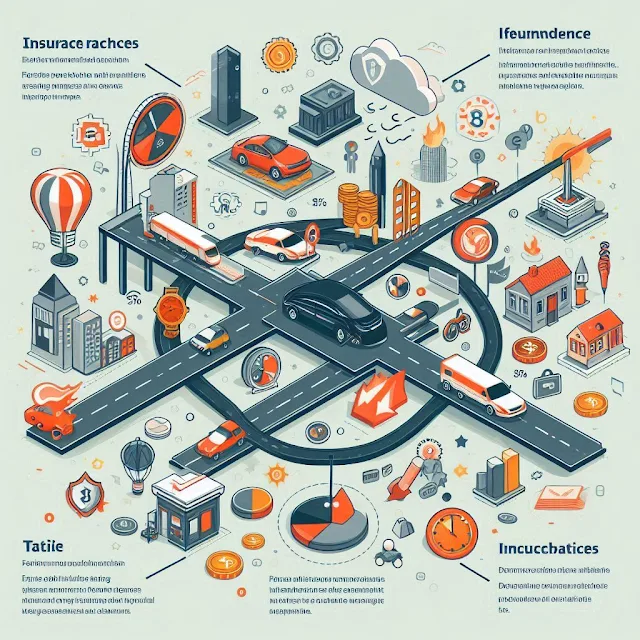Introduction to Car Insurance
Car insurance is essential for any vehicle owner, providing financial protection against accidents, theft, and other unforeseen events. Understanding car insurance can seem daunting, but with the right information, you can make informed decisions that suit your needs. In this comprehensive guide, we’ll explore everything you need to know about car insurance, from types of coverage to tips for finding the best rates.
Understanding Car Insurance Basics
What is Car Insurance?
Car insurance is a contract between you and an insurance company that provides financial coverage in case of vehicle-related incidents. This can include accidents, damage to your car, and liability for injuries or damage to others. The primary purpose of car insurance is to protect you from significant financial loss.
Why Do You Need Car Insurance?
Car insurance is not just a legal requirement in most places; it's also a financial safeguard. Without insurance, you could face high costs after an accident or theft. Additionally, having insurance gives you peace of mind, knowing that you are protected against unexpected events.
Types of Car Insurance Coverage
Liability Coverage
Liability coverage is mandatory in many states and protects you from financial loss if you’re found at fault in an accident. This type of coverage typically includes bodily injury liability, which pays for medical expenses for others injured in an accident you caused, and property damage liability, which covers repairs to another person's vehicle.
Collision and Comprehensive Coverage
Collision coverage pays for damages to your vehicle resulting from a collision, regardless of fault. Comprehensive coverage, on the other hand, protects against non-collision incidents, such as theft, vandalism, or natural disasters. Together, these coverages can help ensure your vehicle is protected from various risks.
Factors Affecting Car Insurance Rates
Driving History
Your driving record significantly influences your car insurance premium. Insurance companies assess your history of accidents and traffic violations. A clean record generally leads to lower rates, while a history of incidents may result in higher premiums.
Vehicle Type
The type of vehicle you drive also impacts your insurance costs. High-performance cars or vehicles with high repair costs typically incur higher premiums. Conversely, vehicles with strong safety ratings and lower theft rates often qualify for discounts.
Location
Where you live plays a critical role in determining your car insurance rates. Urban areas with high traffic and crime rates usually have higher premiums compared to rural locations. Insurance companies consider the frequency of accidents and theft in your area when setting rates.
Tips for Finding the Best Car Insurance Rates
Shop Around for Quotes
One of the best ways to find affordable car insurance is to compare quotes from multiple providers. Rates can vary significantly between companies, so it’s crucial to gather several quotes to find the best deal. Use online comparison tools to streamline this process.
Consider Bundling Policies
Many insurance companies offer discounts for bundling multiple policies, such as car and home insurance. This can lead to significant savings on your overall premiums while simplifying your insurance management.
Look for Discounts
Insurance companies offer various discounts for factors like safe driving, low mileage, or being a member of certain organizations. Be sure to ask about any available discounts that could lower your premium.
Common Car Insurance Myths
Myth 1: Red Cars Are More Expensive to Insure
This is a common misconception. The color of your car does not affect your insurance rates. Instead, factors like the car's make, model, safety features, and your driving record are what really matter.
Myth 2: All Insurance Companies Are the Same
While all insurance companies provide coverage, their policies, customer service, and claims processes can vary greatly. It’s important to research and choose a company that fits your needs and offers reliable support.
Myth 3: You Don’t Need Insurance If You Don’t Drive Often
Even if you don’t drive frequently, having car insurance is essential. Accidents can happen at any time, and being uninsured could lead to significant financial hardship.
**Frequently Asked Questions About Car Insurance
Q1: What factors should I consider when choosing a policy?
A1: When selecting a car insurance policy, consider coverage types, limits, deductibles, and premiums. Assess your driving habits and financial situation to find a balance that meets your needs.
Q2: How can I lower my car insurance premium?
A2: You can lower your premium by maintaining a clean driving record, choosing a higher deductible, shopping around for quotes, and taking advantage of discounts.
Q3: What should I do if I have an accident?
A3: If you're involved in an accident, ensure everyone's safety first, then exchange information with the other driver. Document the scene and report the accident to your insurance company as soon as possible.











No comments:
Post a Comment
I genuinely appreciate you taking the time to read this blog post. Your support, comments, and engagement mean so much to me. Whether you’re here for the first time or have been following along for a while, I’m grateful to have you as part of this journey.
If you found value in this post, please consider sharing it or leaving a comment—your feedback helps me create content that resonates with you. Thank you for being a part of this community!
Warm regards,
Daily Boost Guide